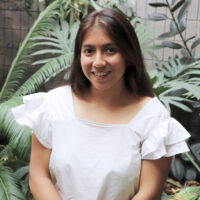
Adaptation of a tissue culture-independent transformation method and genomic editing tools for Coffea arabica
Coffea arabica represents about 60% of global coffee production. This cultivar is highly sensitive to climate change and pathogens such as coffee leaf rust (Hemileia vastatrix) and coffee berry disease (Colletotrichum kahawae). Conventional methods for genetically modifying plants involve biolistic or Agrobacterium tumefaciens-mediated transformation and subsequent tissue culture, which is a long and tedious process with coffee plants. However, new techniques for tissue culture-independent transformation, which have been developed recently for several plant species, can be adapted to genetically engineer coffee. Another recent advance is the implementation of RUBY, a reporter gene that encodes the betalain biosynthesis pathway as a visual screening marker for the successful integration of exogenous genes in plants. The main objective of this project is to combine tissue culture-independent plant transformation approaches and the RUBY reporter system for CRISPR/Cas9 mutagenesis and stable transgene expression in C. arabica. As part of the project, different A. tumefaciens strains and inducible promoter systems for the RUBY gene are being used to optimize coffee transformation.
This internship has been so far the best experience in my life. At the beginning of the summer, I had expectations of getting more involved in the general workflow of researching and talking with professors about opportunities for graduate school. Being surrounded by international scientists in the Jander lab made me feel proud of being a Latina in STEM and motivated me to keep going in this long path of academic and personal formation. By working on this project, I not only learned new techniques related to plant science, but I also had the opportunity to put into practice the knowledge that I have acquired in my home university. I want to highlight the help of my mentor, Boaz Negin, for allowing me to apply troubleshooting by my own before asking him because it challenged me, increased my confidence, and made me more independent in the lab.
